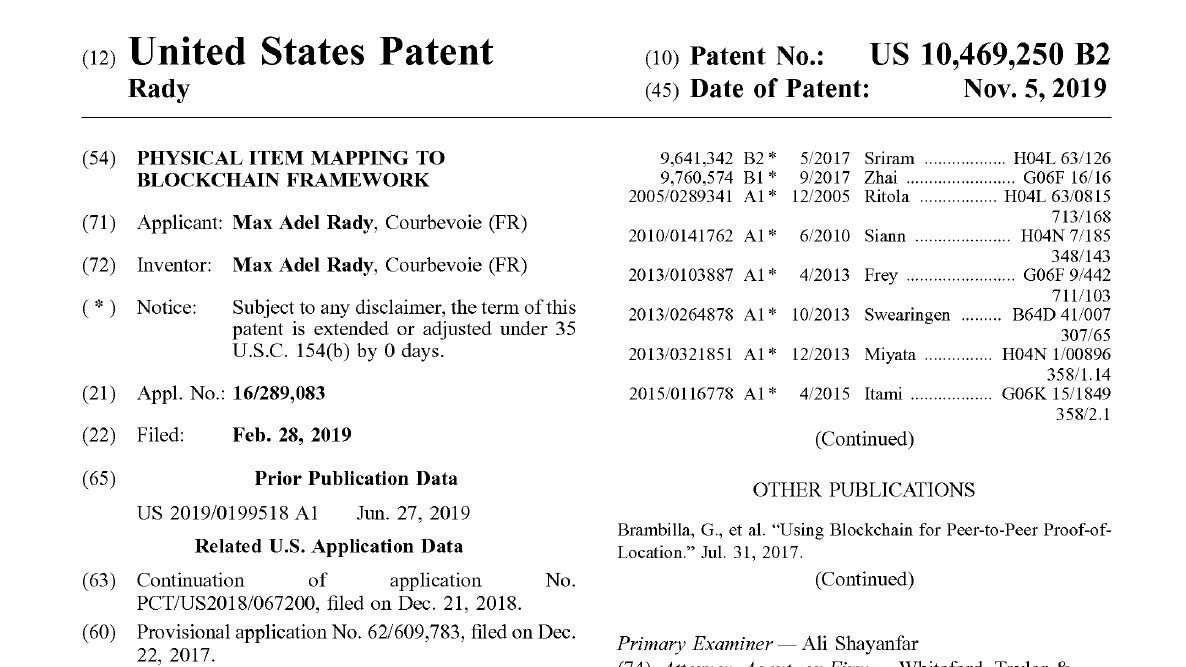Articles

The Unknown and Underappreciated Patents
One of the most interesting and unknown aspects of patent law is standard-essential patents, which have made modern tech possible.

Registering a trademark
If you are a business owner, registering a trademark for your brand can be a crucial step in protecting your intellectual property. A trademark is a word, phrase, symbol, design, or even a color or smell, that distinguishes the source of your goods or services from those of others. It represents the quality and reputation of your business and can help to prevent others from using a similar mark in a way that might confuse consumers. It also prevents other businesses from freeriding on the goodwill of your brand.

A summary of the four types of intellectual property
Intellectual property refers to the creations of the mind, such as inventions, logos, literary works, and secret recipes. There are four main types of IP in the U.S.: patents, trademarks, copyrights, and trade secrets. Although navigating between them can be confusing, each one is a legal protection for something different. Below is a table that summarizes the main differences. Keep in mind that for your specific situation, you should speak to an attorney to determine what protections or remedies apply to you—contact us to discuss your options.

Why it’s important to register your copyrights
Under the Copyright Act, copyright automatically exists for “original works of authorship fixed in any tangible medium of expression.” When an artist paints on a canvas, an author types a novel using a word processor, or a singer records a song as an mp3, each of them obtain a copyright in their works at the moment of creation. So if copyright already exists, why bother registering the copyrights with the U.S. Copyright Office?

Your NFT project’s terms of use are probably unenforceable
One of the topics that generates the most passionate debate within the NFT community is the enforceability of projects’ terms of use. The terms often contain provisions limiting liability for NFT projects, like binding arbitration clauses and class action waivers, and are usually posted on the project’s website. But how enforceable are these terms? Although the answer depends on the facts of the case, applying some well-established legal principles doesn’t bode well for NFT projects seeking to enforce terms against buyers.

Supreme Court agrees to hear two IP cases
On Friday, the Supreme Court agreed to hear two IP cases regarding issues that can have large ripple effects in the patent and trademark worlds. In Amgen Inc. v. Sanofi, the Court will decide when a patent’s disclosure is sufficient, an issue it hasn’t visited in over a century. And in Abitron Austria GmbH v. Hetronic Int’l, Inc., at issue is to what extent a trademark infringer must pay damages based on foreign sales, which was last considered by the Court over 70 years ago.

First blockchain patent analyzed by a court is invalidated
Although blockchain patents have been around for quite some time, they are not yet often the subject of litigation. Now, for the first time (as far as I can tell), a federal court in a patent litigation case has issued a decision on the validity of a blockchain-related patent.

MetaBirkins NFT creator can’t toss Hermès trademark suit
Although the judge’s decision isn’t on the merits of the case, it’s the first time we’ve gotten insight into how a court views the interaction between trademark law and free speech in the NFT space. Since U.S. courts rely heavily on prior case law and precedent, this decision may be significant for NFT artists and trademark owners going forward.

Be careful sending that letter: appellate court confirms that demand letters can justify personal jurisdiction in declaratory judgment actions
The Federal Circuit recently confirmed that patent demand letters can justify the exercise of personal jurisdiction over the sender.

Can I register copyrights to protect my NFT images?
NFT creators need to be careful about protecting their project’s IP. Copycats drag down the value of a brand and confuse consumers. Can creators register copyrights in their NFTs to protect themselves?

Supreme Court grants Warhol petition seeking clarification on fair use
Today, the Supreme Court agreed to hear Andy Warhol Foundation for the Visual Arts, Inc. v. Goldsmith, a case pitting the famous artist’s foundation against the photographer of a photo of the musician Prince. The Court’s decision is likely to have big implications for copyright law’s “fair use” doctrine.
